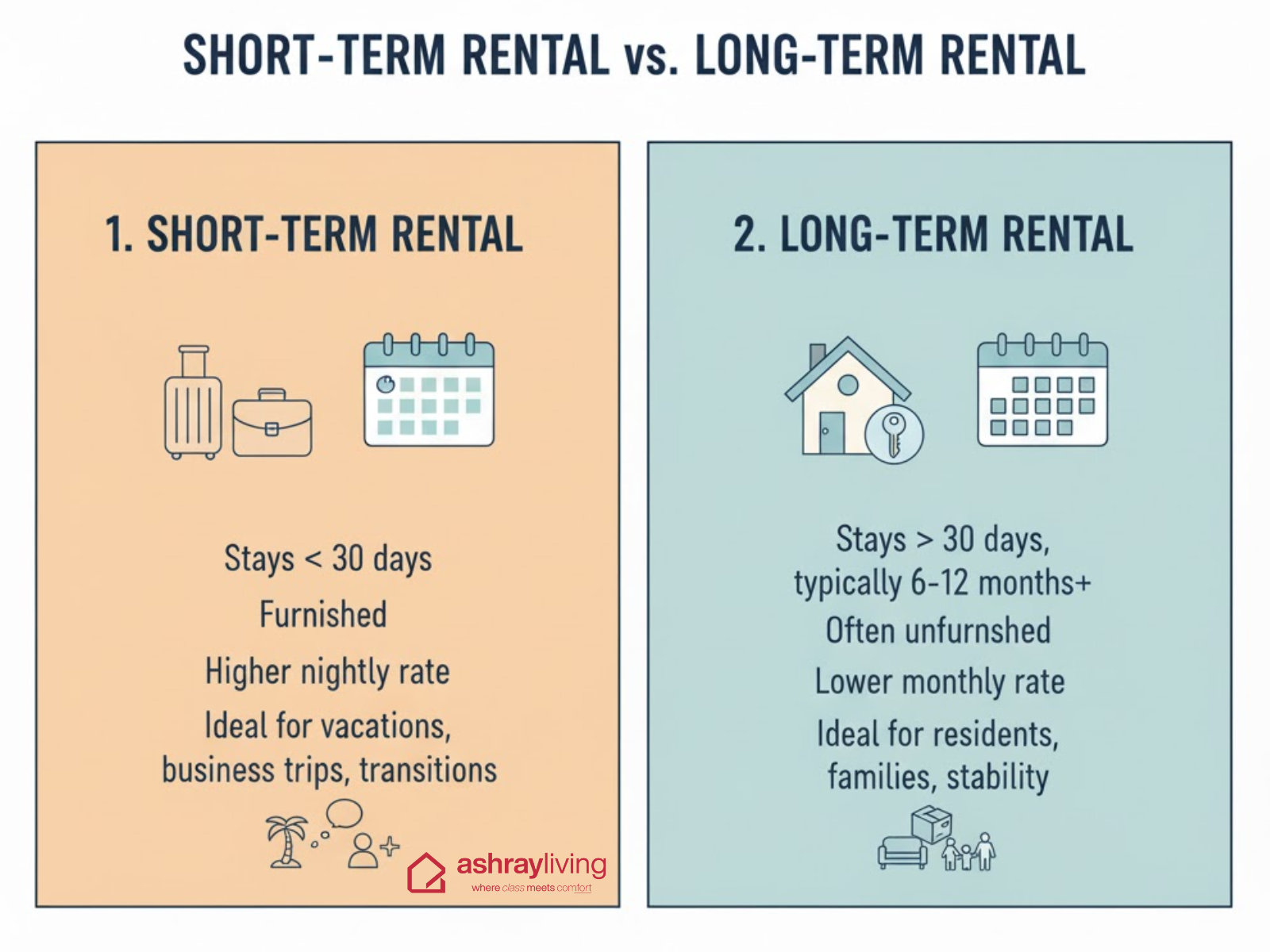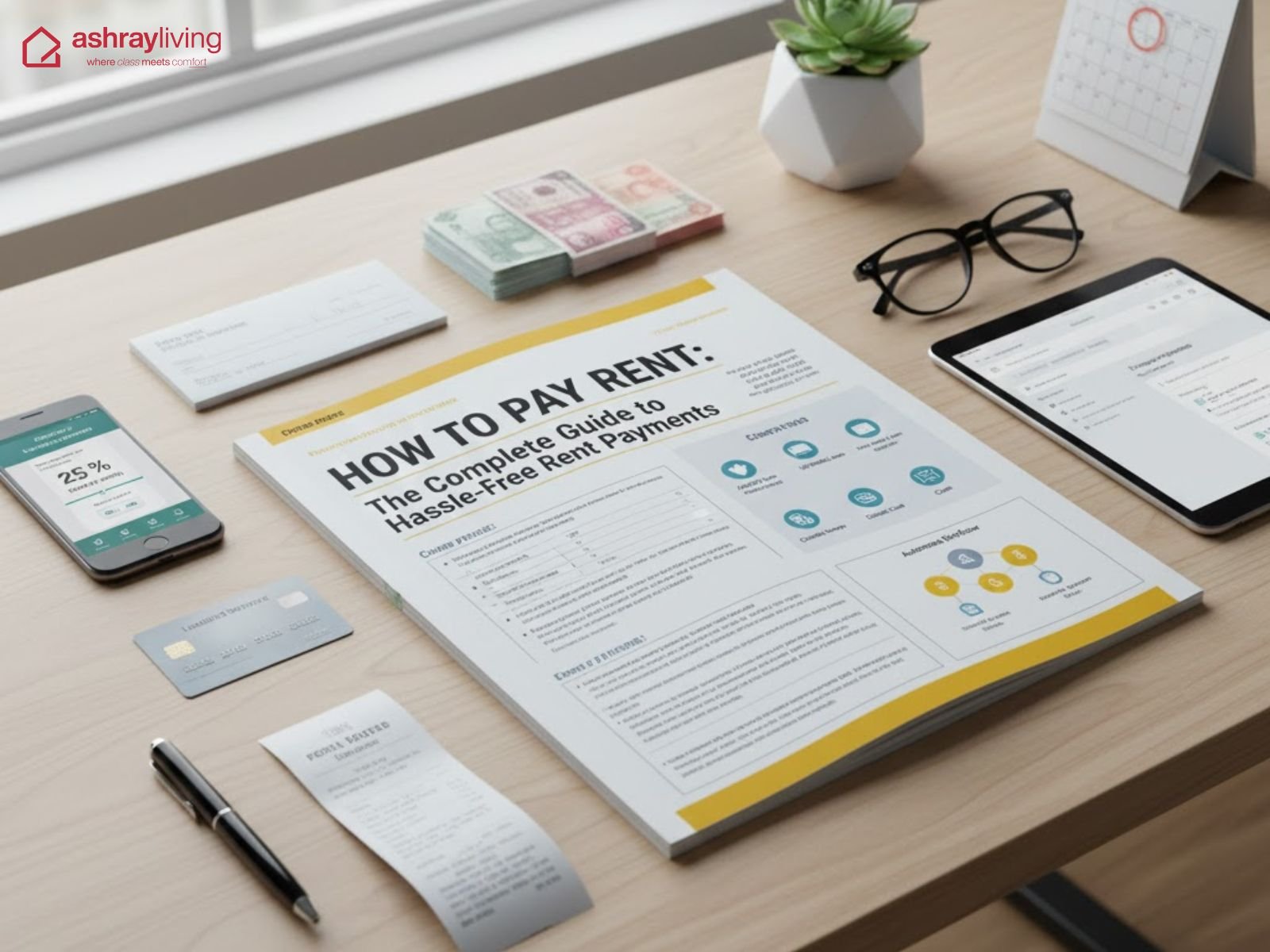
Choosing between a short-term and long-term rental can be a tough decision for both property owners and tenants. Each option offers its own set of advantages and challenges depending on your lifestyle, goals, and financial plans. In this article, we’ll break down the key differences, pros, and cons of both rental types to help you make an informed choice.
What Is a Short-Term Rental?
A short-term rental refers to a property rented out for a short duration — usually from a few days to a few months. These rentals are popular among travelers, digital nomads, or professionals on temporary assignments. Common examples include Airbnb stays, serviced apartments, and vacation homes.
What Is a Long-Term Rental?
A long-term rental typically involves leasing a property for six months or more, often extending up to several years. This arrangement is ideal for individuals or families seeking stability and a permanent residence.
Tenants in long-term rentals usually sign a lease agreement, which outlines rent, maintenance responsibilities, and renewal terms.
Key Differences Between Short-Term and Long-Term Rentals
| Aspect | Short-Term Rental | Long-Term Rental |
|---|---|---|
| Duration | Days to a few months | 6 months to several years |
| Target Tenants | Tourists, professionals, students | Families, working individuals |
| Income Stability | Fluctuating, but higher per night | Steady and predictable |
| Maintenance | Frequent upkeep due to guest turnover | Less frequent, routine maintenance |
| Furnishing | Fully furnished | Often semi-furnished or unfurnished |
| Flexibility | High | Low |
| Legal Requirements | May vary by city or region | Standard rental laws apply |
Advantages of Short-Term Rentals
1. Higher Income Potential: Short-term rentals often generate higher earnings per night compared to long-term leases, especially in popular tourist destinations or high-demand areas.
2. Flexibility for Owners: Owners can decide when to rent out their property and when to keep it vacant for personal use.
3. Easier to Adjust Pricing: Since rates can change seasonally, you can adjust prices based on demand and market conditions.
Disadvantages of Short-Term Rentals
1. Frequent Turnover: Managing guest check-ins, cleanings, and bookings can be time-consuming and may require hiring a property manager.
2. Uncertain Income: Income can fluctuate during off-seasons or low-demand periods.
3. Higher Maintenance Costs: Frequent guest stays mean more wear and tear, leading to higher maintenance and cleaning expenses.
Advantages of Long-Term Rentals
1. Stable and Predictable Income: With a signed lease, property owners receive a fixed rent every month, ensuring financial stability.
2. Lower Maintenance Effort: Tenants stay longer, which reduces turnover and the need for frequent cleaning or advertising.
3. Easier Management: Once rented, long-term tenants require minimal supervision, making it ideal for landlords who prefer a hands-off approach.
Disadvantages of Long-Term Rentals
1. Limited Flexibility: Once a lease is signed, you can’t easily change rent or reclaim the property until the contract ends.
2. Lower Earning Potential: The monthly rent in a long-term lease is usually lower compared to short-term rentals, especially in high-demand markets.
3. Risk of Problematic Tenants: Evicting or managing difficult tenants can be legally and emotionally challenging.
Which Option Is Better for Property Owners?
If you want higher returns and flexibility, and are willing to manage bookings or hire help, a short-term rental might be your best bet. However, if you prefer steady income with less effort, a long-term rental is more suitable. Your decision should depend on:
-
Property location
-
Demand patterns
-
Your availability to manage the property
-
Local laws and tax implications
Which Option Is Better for Tenants?
- For tenants, short-term rentals are great for those seeking temporary accommodation or frequent travelers who value flexibility.
- Meanwhile, long-term rentals are perfect for those who want stability, lower costs, and a sense of home.
Conclusion
Both short-term and long-term rentals have their benefits and drawbacks. The right choice depends on your financial goals, lifestyle, and management capacity. If you’re a property owner, assess your local market and personal priorities before deciding. For tenants, think about how long you plan to stay and your budget. With the right approach, both options can be rewarding in their own way.
Also Read








